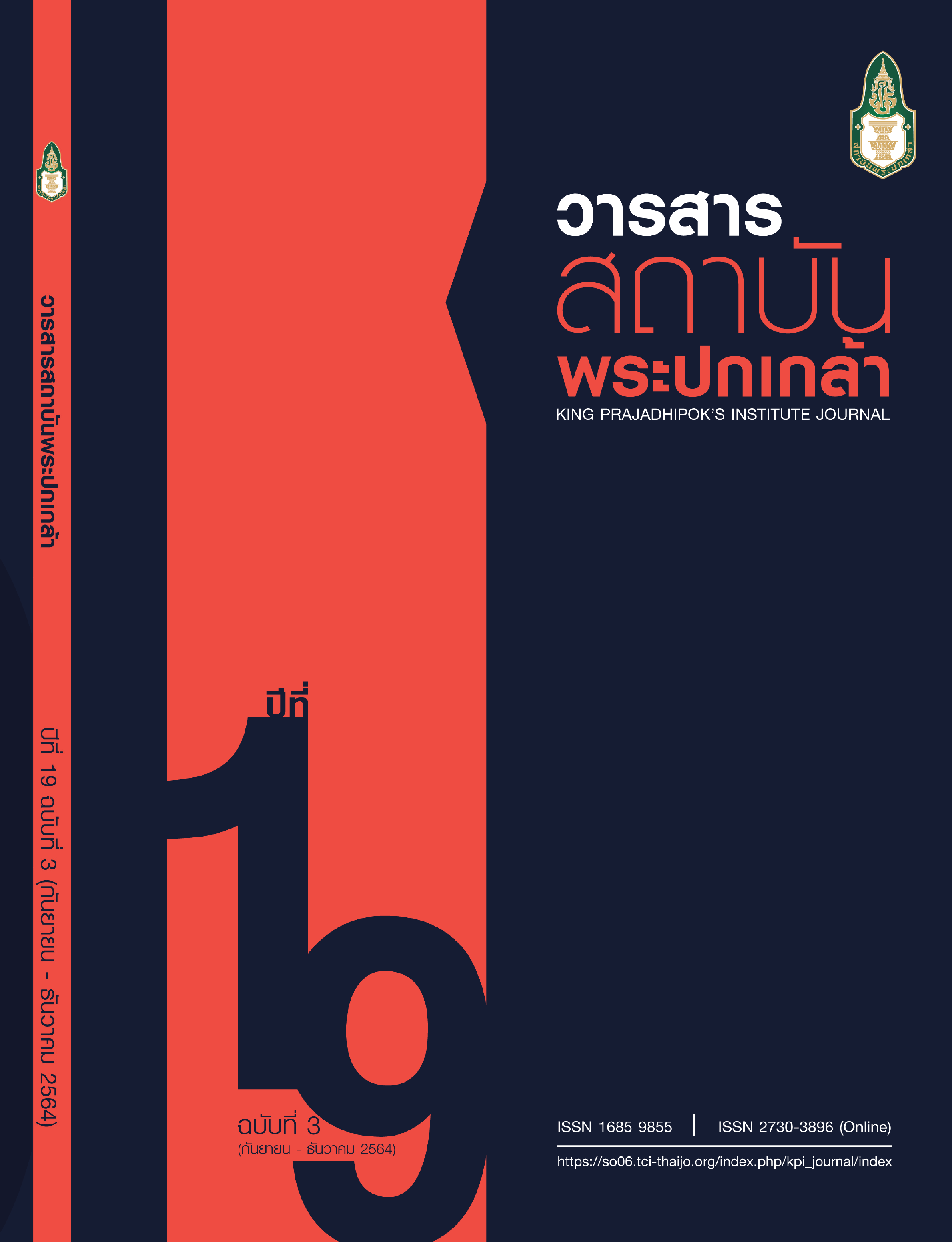Policy Instruments for Promoting Access of Women and Girls to Menstrual Hygiene Products ไม่มี
Main Article Content
Abstract
In recent years, increasing public awareness of the issue of period poverty has globally led to the development of numerous policy instruments for tackling period poverty in many countries. The lack of access to menstrual hygiene products calls for the application of policy instruments to address the support of enhancing opportunities for women and girls to access adequate menstrual hygienic products, including regulatory instruments and economic instruments. Some countries provide policy examples of such a zero-rating of women's menstrual hygiene products and the range of actions put in place to support free period products. These in turn are intended to aid reflection on how these approaches might best be adopted, adapted, or applied to achieve the purposes of tackling the lack of access to sanitary products due to financial constraints in Thailand.
Article Details

This work is licensed under a Creative Commons Attribution-NonCommercial-NoDerivatives 4.0 International License.
@ 2020 King Prajadhipok's Institute The Government Complex Commemorating All Right Reserved.
References
California Legislative Women's Caucus. (2019). Assembly Bill 31 No Tax on Tampons Assemblymember Cristina Garcia (D – 58). Retrieved from https://womenscaucus.legislature.ca.gov/sites/womenscaucus.legislature.ca.gov/files/PDF/AB%2031%20GARCIA%20-%20No%20Tax%20on%20Tampons.pdf
Crawford, B.J. & Spivack, C. (2017). Tampon taxes, discrimination, and human rights. Wisconsin Law Review, 3, 491-549.
Government of Canada. (2020). Excise Tax Act (R.S.C., 1985, c. E-15). Retrieved from https://laws-lois.justice.gc.ca/eng/acts/e-15/page-179.html
Hait, A., & Powers, S. (2019). The value of reusable feminine hygiene products evaluated by comparative environmental life cycle assessment. Resources Conservation and Recycling, 150, 104422.
Hennegan, J. M. (2017). Menstrual Hygiene Management and Human Rights: The Case for an Evidence-Based Approach. Women's Reproductive Health, 3 (4), 212-231.
Her Majesty's Treasury. (2021). Tampon tax abolished from today. Retrieved from https://www.gov.uk/government/news/tampon-tax-abolished-from-today
Keatman, T. Cavill, S. & Mahon, T. (2021). Menstrual hygiene management in schools in South Asia: Synthesis report. Bath, UK: UK Aid Direct.
Mahon, T. & Cavill, S. (2012). Menstrual hygiene matters: Training guide for practitioners. London, UK: WaterAid UK.
New York State Sanate. (2016). 'Tampon Tax' Officially Repealed. Retrieved from https://www.nysenate.gov/newsroom/press-releases/sue-serino/tampon-tax-officially-repealed
Peterson, V.S. (1990). Whose rights? A critique of ‘givens’ in human rights discourse. Alternatives, 15(3), 303-344.
Schwaiger, B. (2021). Menstrual Health and Menstrual Hygiene Management: A Contribution of Sanitation for Millions to Improved Gender Equality and Safer Hygiene. Eschborn: Deutsche Gesellschaft für Internationale Zusammenarbeit.
Sommer, M., Zulaika, G., Schmitt, M. & Gruer, C. (2019). Monitoring Menstrual Health and Hygiene: Measuring Progress for Girls on Menstruation; Meeting Report. New York, NY: Columbia University.
Tull, K. (2019). Period poverty impact on the economic empowerment of women. K4D helpdesk Report 536. Brighton, UK: Institute of Development Studies.
United Nations Children's Fund. (2019). Guidance on Menstrual Health and Hygiene. New York, NY: United Nations Children's Fund.
United Nations Population Fund. (2020). Technical Guidance on the integration of MH in SRHR policies and programmes. Johannesburg: United Nations Population Fund, East and Southern Africa.
Water, Sanitation & Education Centre. (2019). Guide to Menstrual Hygiene Materials. New York, NY: United Nations Children's Fund.
World Bank Group. (2021). Menstrual Health and Hygiene Resource Package: Tools and Resources for Task Teams. Washington, DC: World Bank Group.
Welham, B. (2020). Taxes and duties for sanitary products in Africa WOW Helpdesk Query 50. London: Work and Opportunities for Women & UK Aid Direct.
Youyuenyong, P. (2020). The women and girls’ right of access menstrual hygiene products. Public Health Policy and Laws Journal, 6(2), 435-451.


